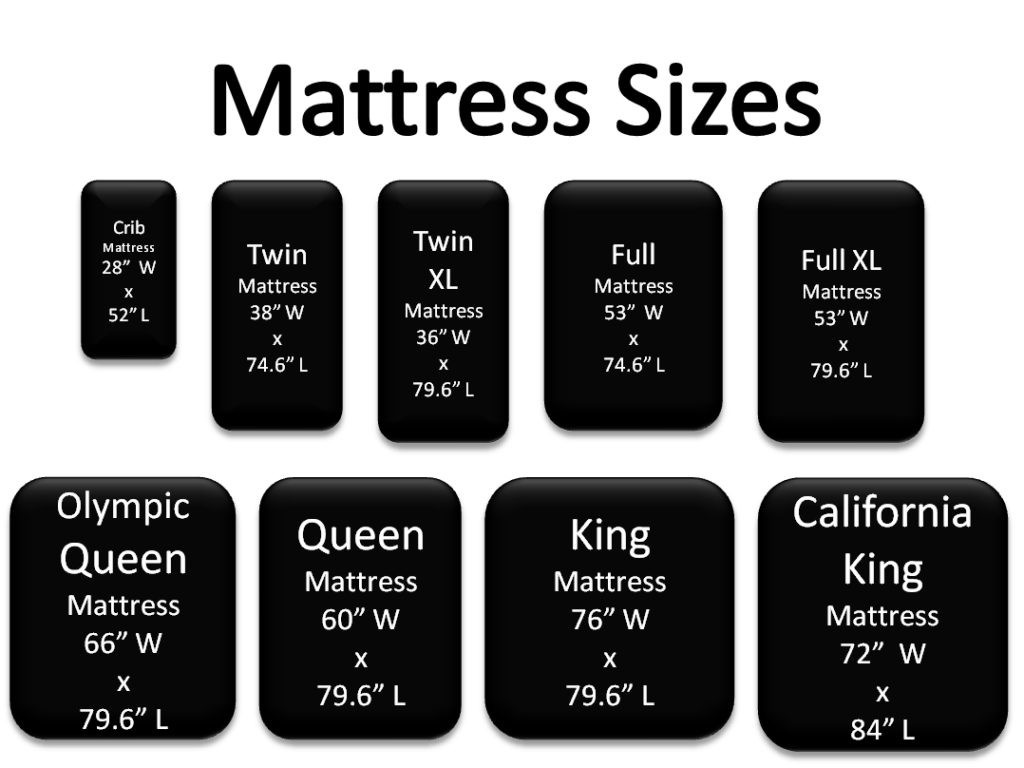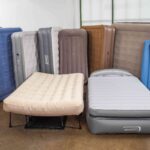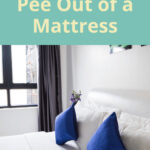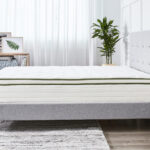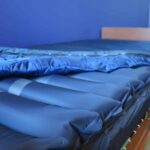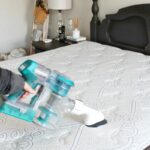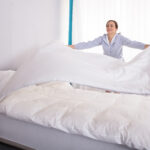Are you wondering “What size is a crib mattress?” when looking for the perfect crib for your baby? Choosing the right size mattress for your baby’s crib is an important decision. Not only does it affect your baby’s comfort, but it also ensures that your baby is safe and secure in the crib. In this article, we will discuss the different sizes of crib mattresses available and help you choose the right size for your baby’s needs.
Factors to Consider When Choosing a Crib Mattress
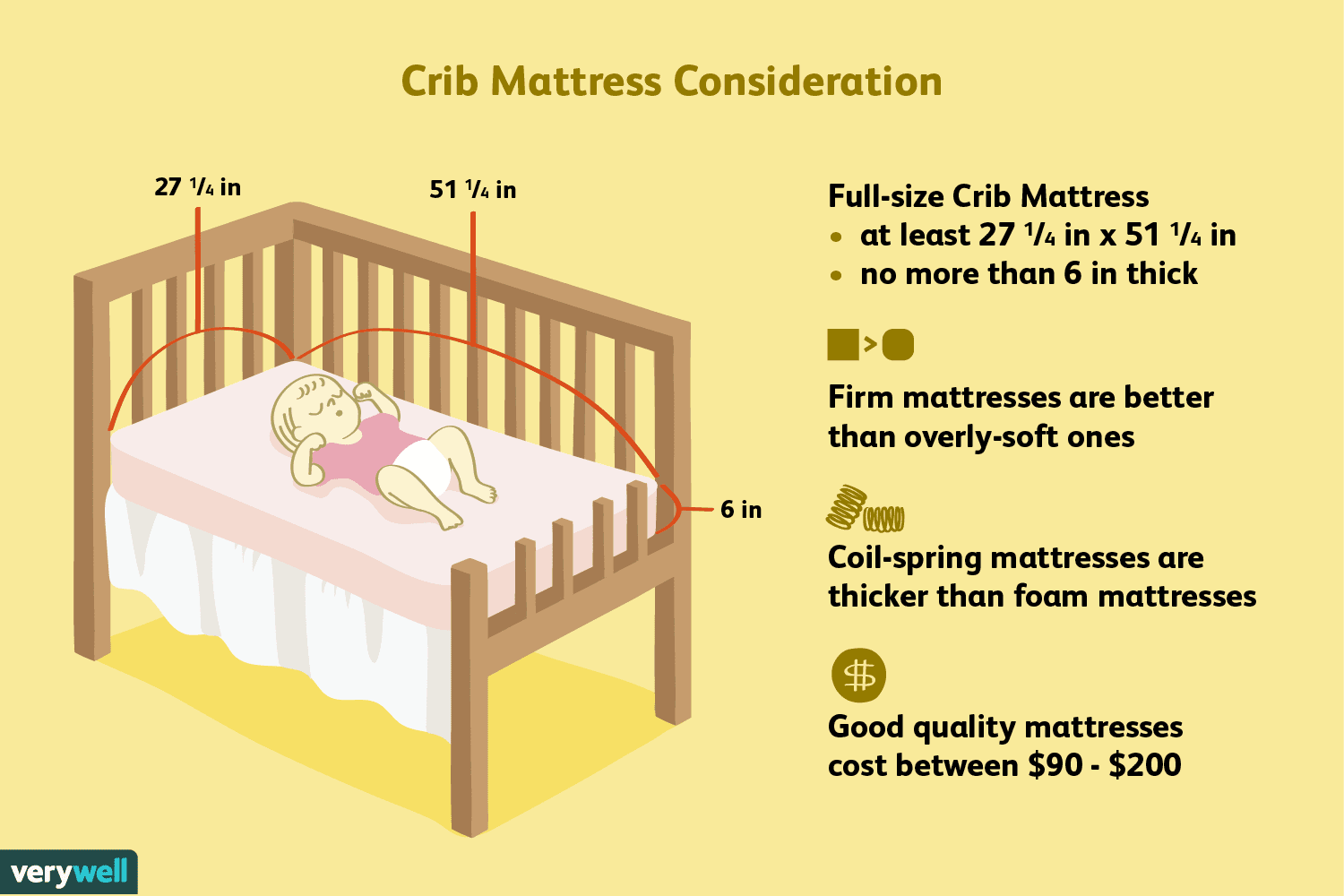
When it comes to choosing the right mattress size for your baby’s crib, there are a few factors that you should consider. First and foremost, what is the standard crib mattress size? Crib mattresses come in several sizes, but the standard size is 28 inches by 52 inches, which fits a crib perfectly.
In addition to size, you will also want to consider the material of the mattress. The best materials for crib mattresses are usually foam or innerspring mattresses, as they provide the most support for your baby. You can also look for organic materials, such as wool or cotton, which are considered to be the safest for baby’s skin.
The firmness of the mattress is also important. Too soft of a mattress can be dangerous for baby, as it can increase the risk of SIDS. On the other hand, a mattress that is too firm can be uncomfortable and could lead to your baby being uncomfortable while sleeping.
Finally, you should consider the cost of the mattress. While it is important to invest in a quality mattress that will provide your baby with a comfortable and safe sleep, you don’t want to break the bank. Look for mattresses that are affordable, but also provide the support and comfort your baby needs.
Standard Crib Mattress Size
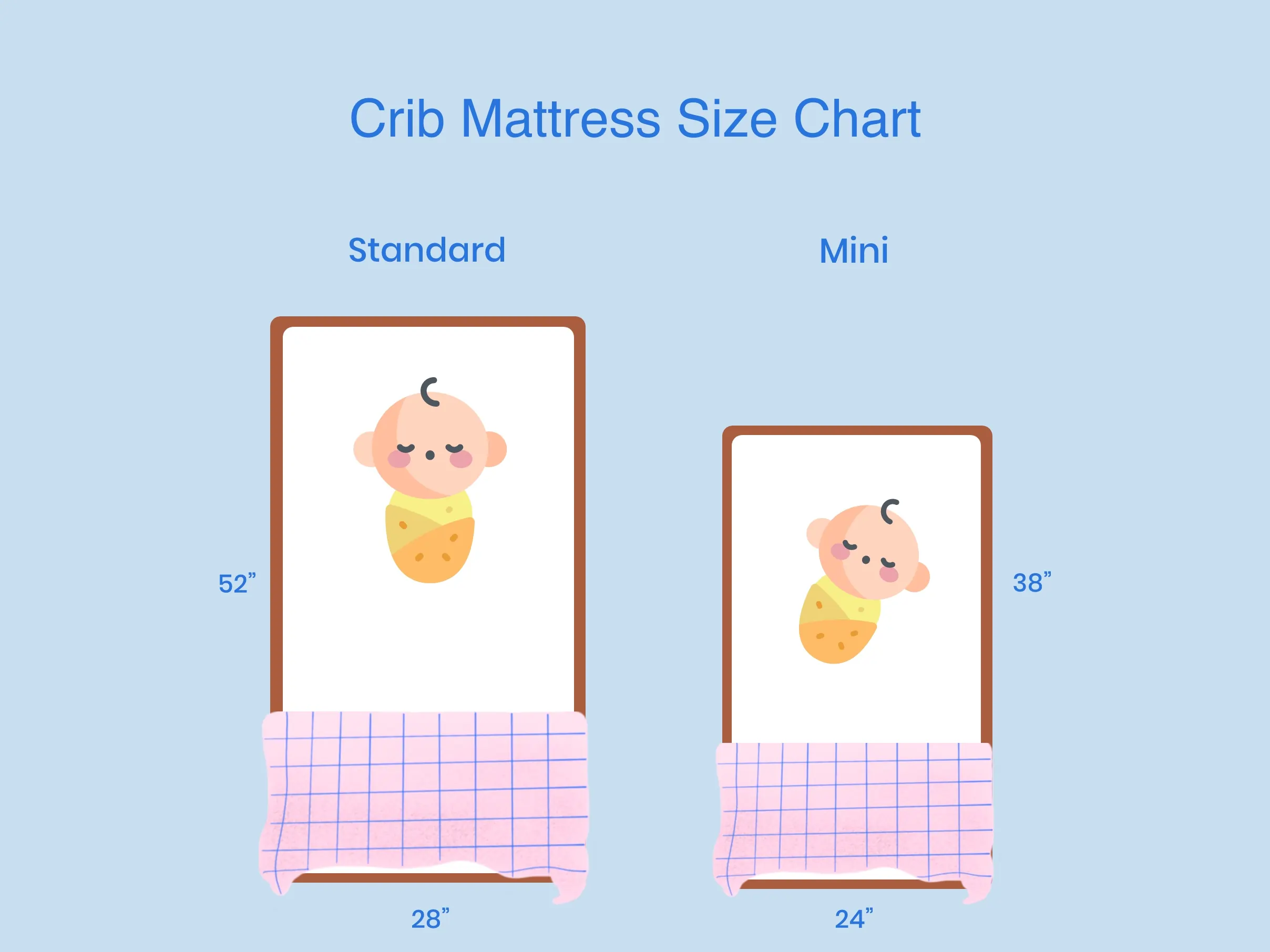
A standard crib mattress is usually 52 inches in length and 27 to 28 inches in width. This size of mattress is designed to fit a standard-size crib. It is generally recommended that you purchase a mattress that is firm and fits snugly in the crib to ensure that your baby is safe and secure. It is also important to make sure that the mattress is free of any tears, rips or other damage that could provide an unsafe environment for your baby.
When shopping for a crib mattress, keep in mind that the size should be proportional to the size of the crib. If the mattress is too small, then it won’t provide adequate coverage for your baby. Conversely, if it is too large it could create gaps between the mattress and the sides of the crib, which could pose a suffocation hazard. The safest option is to purchase a standard crib mattress that is specifically designed to fit a standard-size crib.
To determine how wide is a crib mattress, measure the inside of the crib from left to right. The measurements should be approximately 27 to 28 inches wide. Be sure to measure the inside of the crib, as the outside dimensions may be slightly different. You can then use this measurement to choose a mattress that is the correct size for your baby’s crib.
When selecting a crib mattress, it is important to consider the materials used in its construction. Look for mattresses that are made of breathable, hypoallergenic materials such as cotton or wool. Also, make sure to choose one that is free of chemicals, dyes, and other potential irritants. Finally, be sure to read the instructions and follow any safety guidelines provided.
When it comes to selecting the right size for your baby’s crib, a standard crib mattress is the safest and most comfortable option. By following the steps above, you can make sure that you choose the right size mattress for your baby’s crib and provide a safe and comfortable sleeping environment.
Weight Considerations
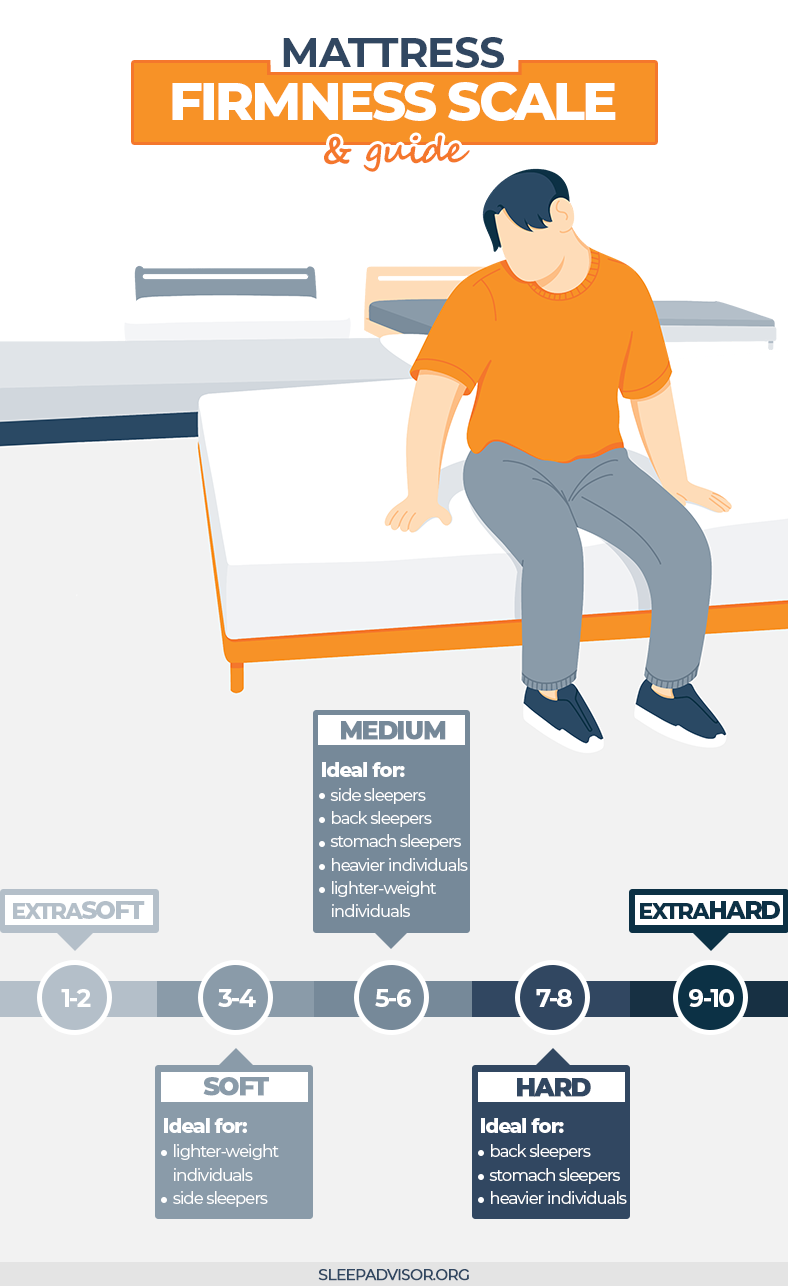
When it comes to choosing the right size mattress for your baby, it is important to consider the weight of the child. A mattress that is too small can be uncomfortable and can cause the child to feel cramped and unable to move around. On the other hand, a mattress that is too big can be dangerous and can cause the child to fall out of the crib.
Standard size crib mattresses are designed for children up to about 30 pounds. If your child is heavier than this, it is recommended that you purchase a larger mattress. If your baby is over 30 pounds, then you should consider buying a mattress that is larger than the standard size.
Oversized mattresses are designed for children who weigh more than 30 pounds and are typically larger than the standard size. These mattresses are usually made of foam or innerspring material and are usually thicker than the standard size. They are also more expensive than the standard size mattresses.
Custom-sized mattresses are designed to fit larger cribs and can be tailored to fit any size crib. These mattresses are usually made of foam or innerspring material and are very thick. They are also more expensive than standard size mattresses and can be difficult to find.
| Mattress Type | Weight Limit |
|---|---|
| Standard Size | Up to 30 lbs |
| Oversized | Over 30 lbs |
| Custom-sized | Any size |
Safety Considerations
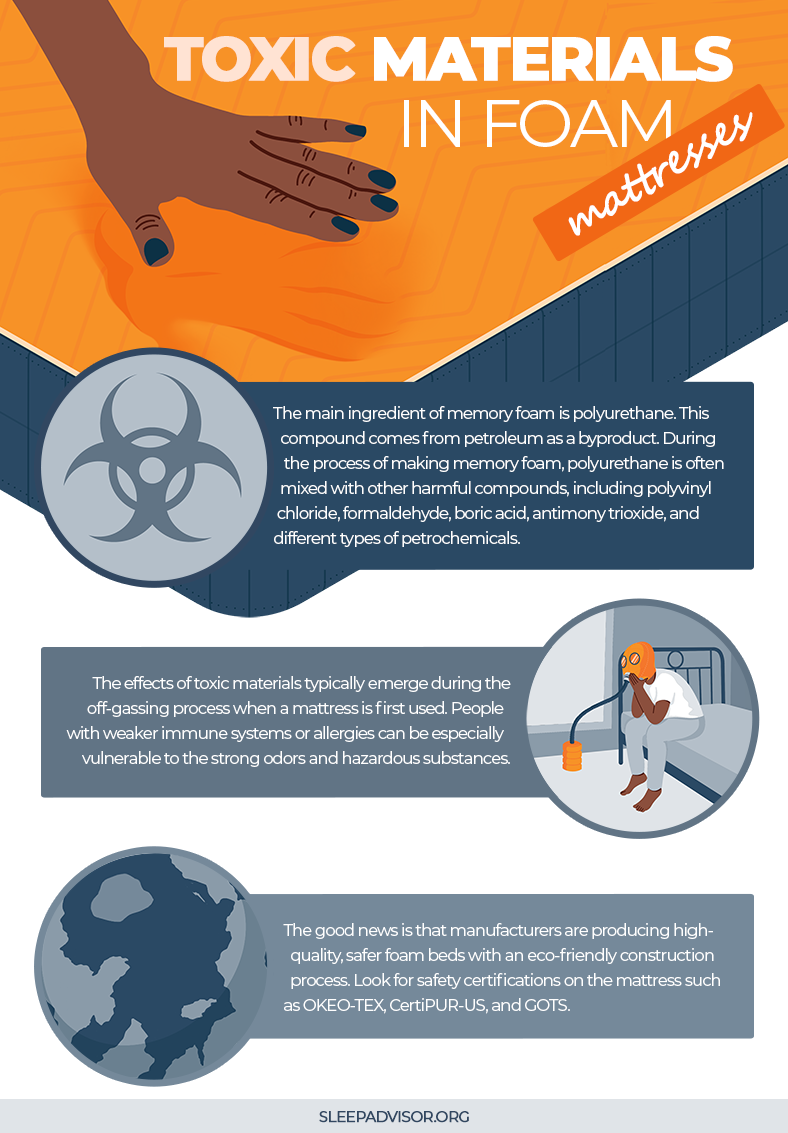
- Crib Mattress Height: The mattress should be no higher than two inches from the top of the crib rails. This helps to prevent baby from climbing out of the crib.
- Crib Mattress Firmness: The crib mattress should be firm and provide support for your baby. Soft mattresses are not recommended as they can increase the risk of Sudden Infant Death Syndrome (SIDS).
- Crib Mattress Safety: The mattress should fit snugly against the sides of the crib. There should be no gaps between the mattress and the crib frame to prevent baby from becoming trapped.
- Crib Mattress Cleanliness: It is important to keep the crib mattress clean and free of dust, dirt and other allergens. It is recommended to use a waterproof mattress cover to help protect the mattress from spills and other messes.
Types of Crib Mattresses
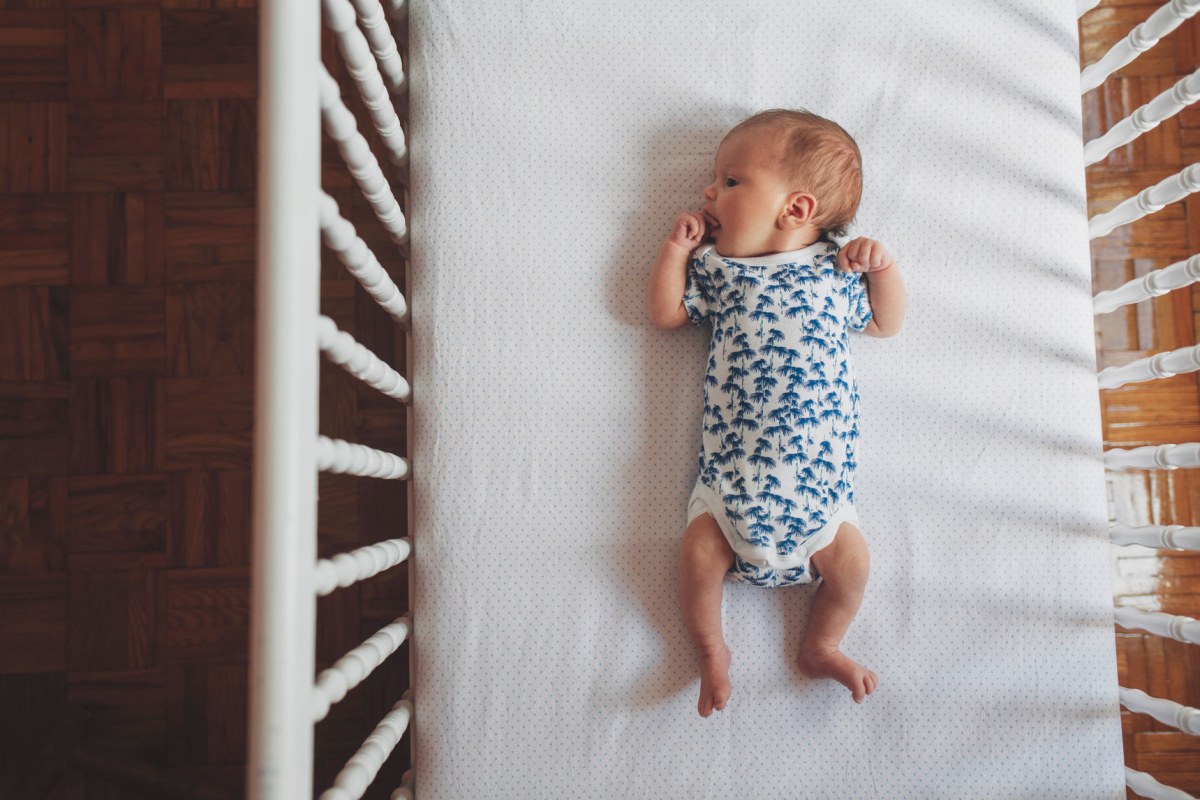
Crib mattresses come in two types: foam and innerspring. Foam mattresses are lightweight and often made from polyurethane foam, which is resistant to mold and mildew. They provide a comfortable, supportive sleep surface and are usually less expensive than innerspring mattresses.
Innerspring mattresses are constructed from a steel coil support system and multiple layers of cushioning. They are heavier than foam mattresses and more expensive. However, they provide a more supportive sleep surface and tend to last longer.
When choosing a crib mattress, always look for one that is firm and fits snugly in the crib. If a mattress is too soft, it can cause an unsafe sleeping environment for your baby. Also, make sure to read reviews and pick a mattress that is certified by an independent testing organization such as the Consumer Product Safety Commission.
Foam
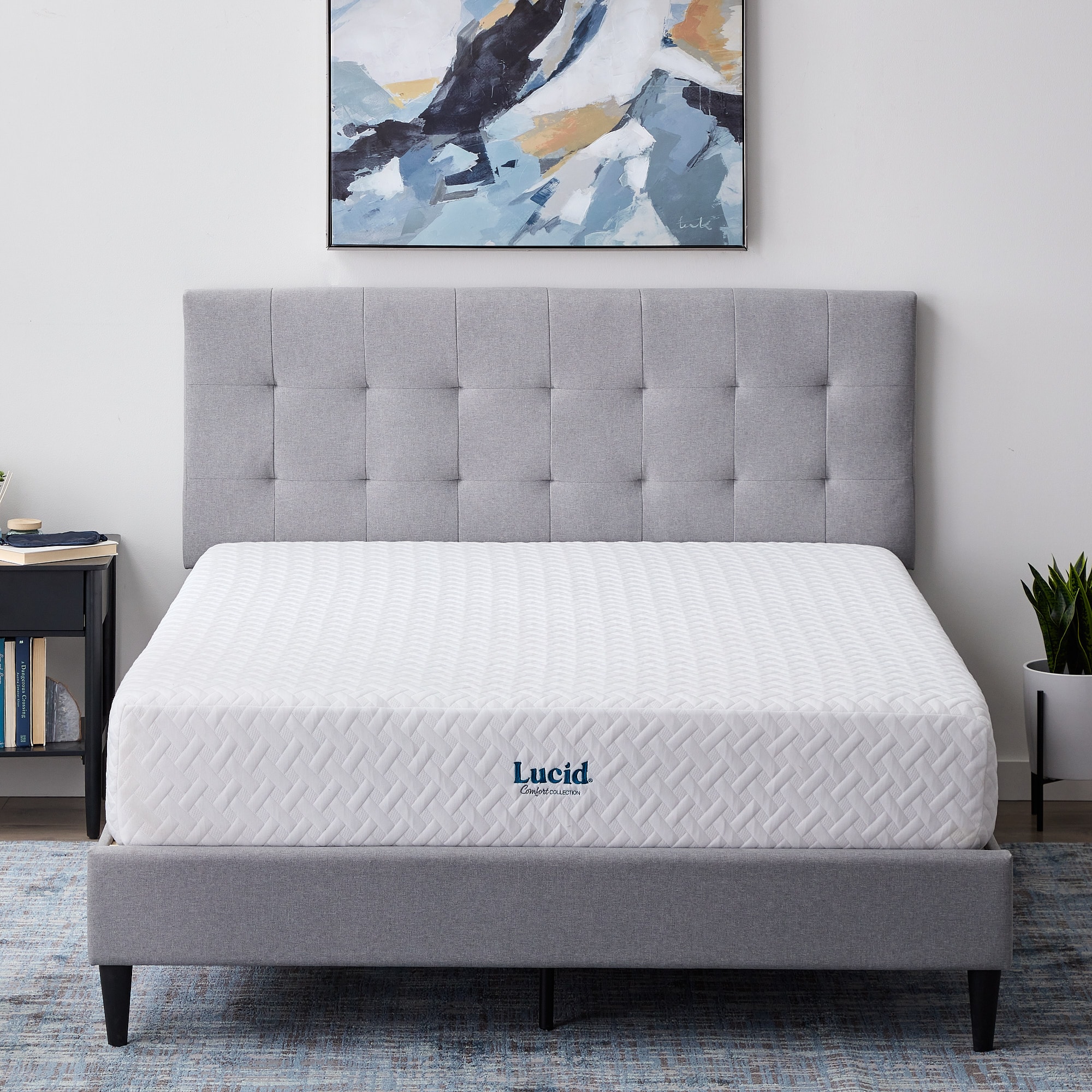
Foam is one of the most popular materials used to make crib mattresses. Foam crib mattresses are lightweight, durable, and affordable. They often contain a layer of memory foam that contours to the baby’s body and provides a comfortable sleeping surface.
- Pros: Lightweight, durable, affordable, and contours to the baby’s body for comfort
- Cons: May not be as supportive as other materials
When selecting a foam mattress, it is important to look for one that is made from high-density foam and is certified by CertiPUR-US®. This certification ensures the foam is free from harmful chemicals, is low in VOCs, and meets rigorous quality standards. The thickness of foam mattresses can vary between 4 and 8 inches, with thicker mattresses providing more support. It is important to choose the right thickness for your baby’s comfort.
Innerspring
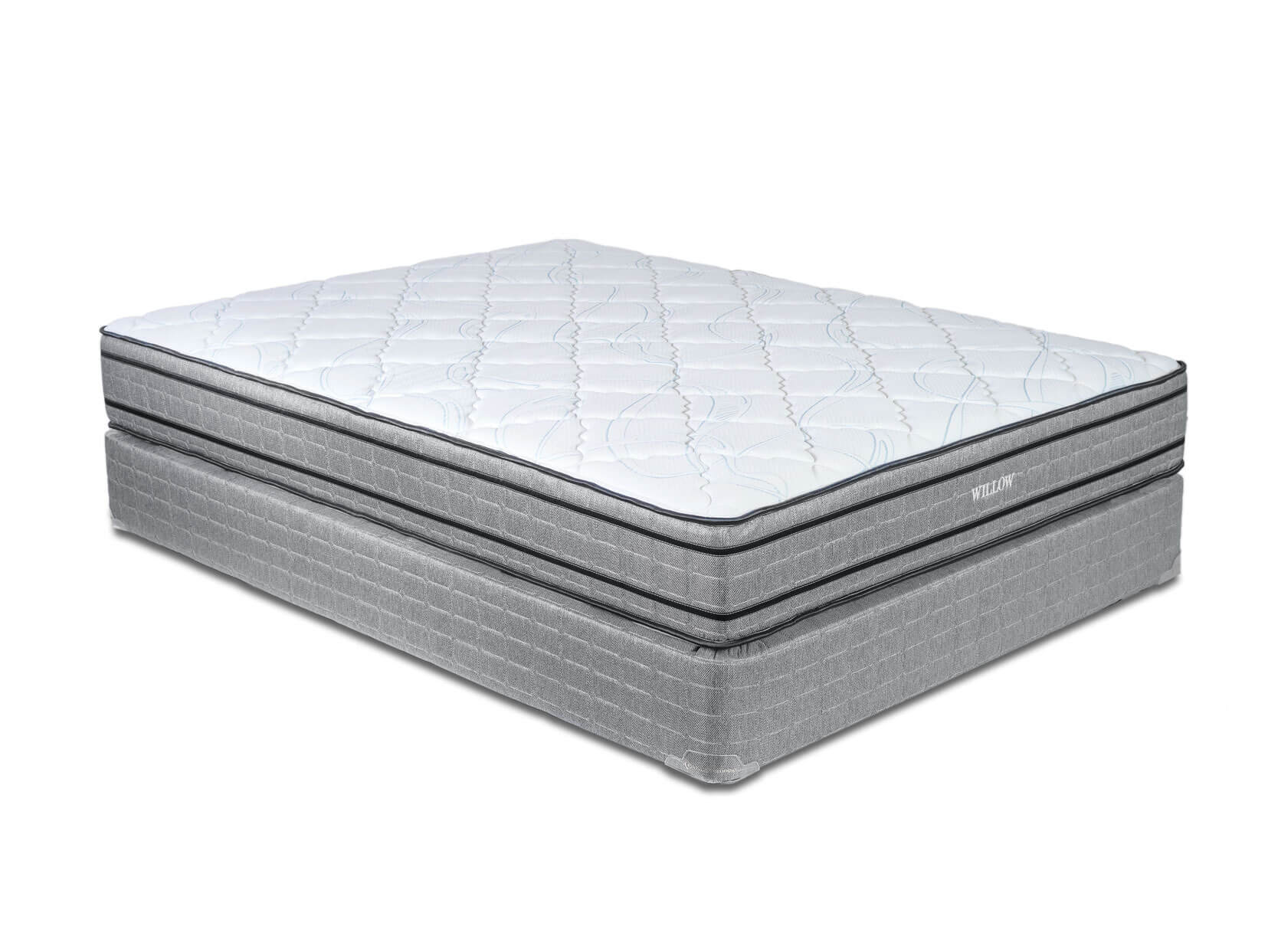
- Size: 28 inches x 52 inches
- Thickness: 6 to 8 inches
- Material: Steel coils and foam layers
- Comfort: Medium firmness
Innerspring crib mattresses are one of the most common types available. They are constructed with steel coils and foam layers, typically 6 to 8 inches thick. Innerspring mattresses come in a standard size of 28 inches x 52 inches, making them a great fit for most cribs. They provide medium firmness, providing both comfort and support for your baby.
Organic Crib Mattresses
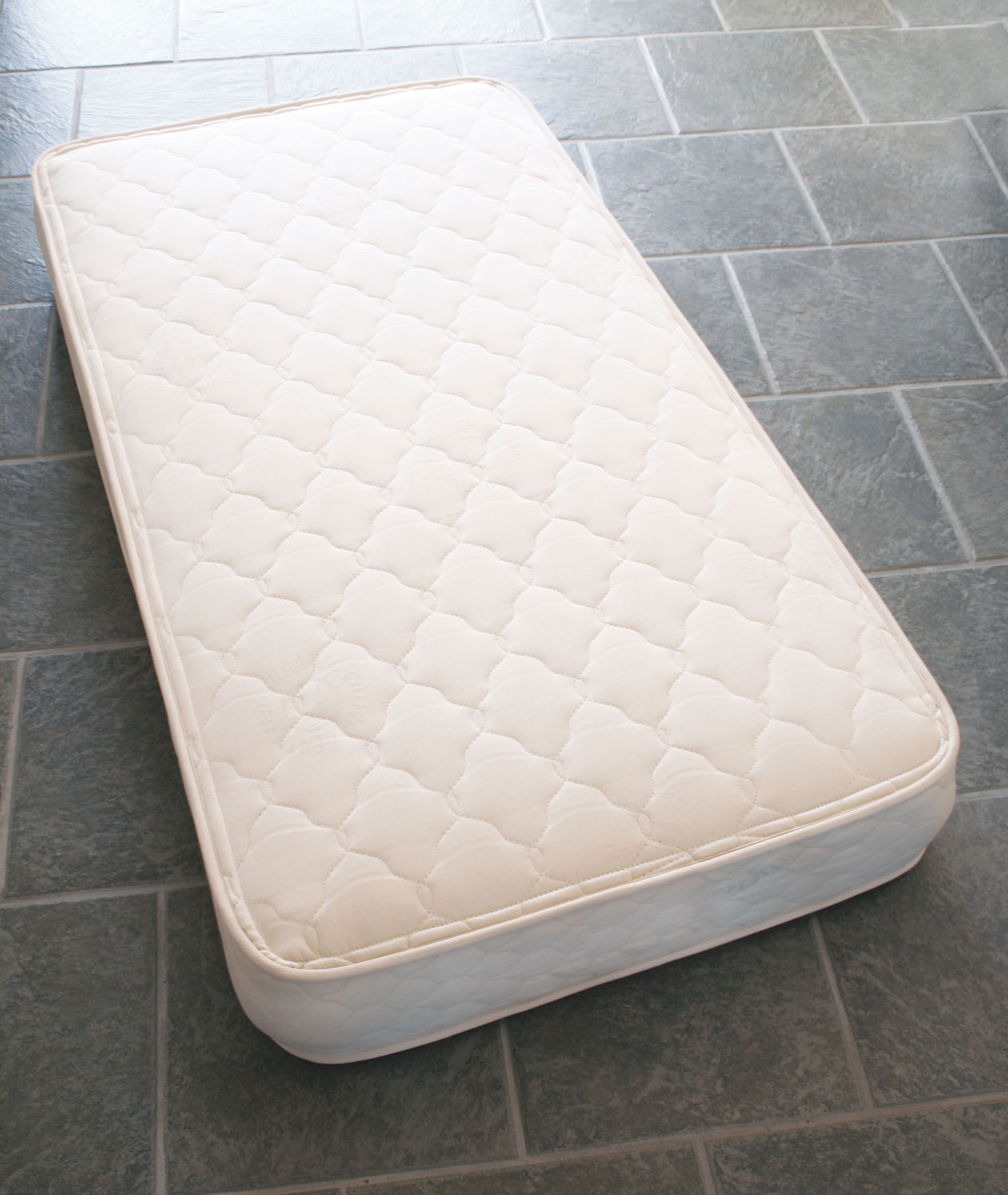
Organic crib mattresses are becoming increasingly popular due to their natural and chemical-free composition. They are made from materials such as organically grown cotton, wool, and natural latex. Organic crib mattresses are free from toxins, making them a safer choice for your baby’s comfort.
What size is a crib mattress? When it comes to organic crib mattresses, the standard crib mattress size is 52″ x 28″ x 6″. This size is designed to fit most standard cribs and toddler beds.
How wide is a crib mattress? Organic crib mattresses are usually 6 inches thick, but some models may be thicker. Before you purchase an organic crib mattress, make sure it fits properly in your crib.
What is standard crib mattress size? The standard crib mattress size is 52″ x 28″ x 6″. This size is designed to fit most standard cribs and toddler beds.
Organic crib mattresses are a great choice for babies and parents who want to ensure their little one is sleeping in a healthy environment. To ensure the best fit and comfort for your baby, make sure to measure your crib and choose the right size for your organic crib mattress.
- Organic crib mattresses are made from organically grown cotton, wool, and natural latex.
- The standard crib mattress size is 52″ x 28″ x 6″.
- Organic crib mattresses are usually 6 inches thick.
- Measure your crib before purchasing an organic crib mattress.
Important Features to Look for in a Crib Mattress
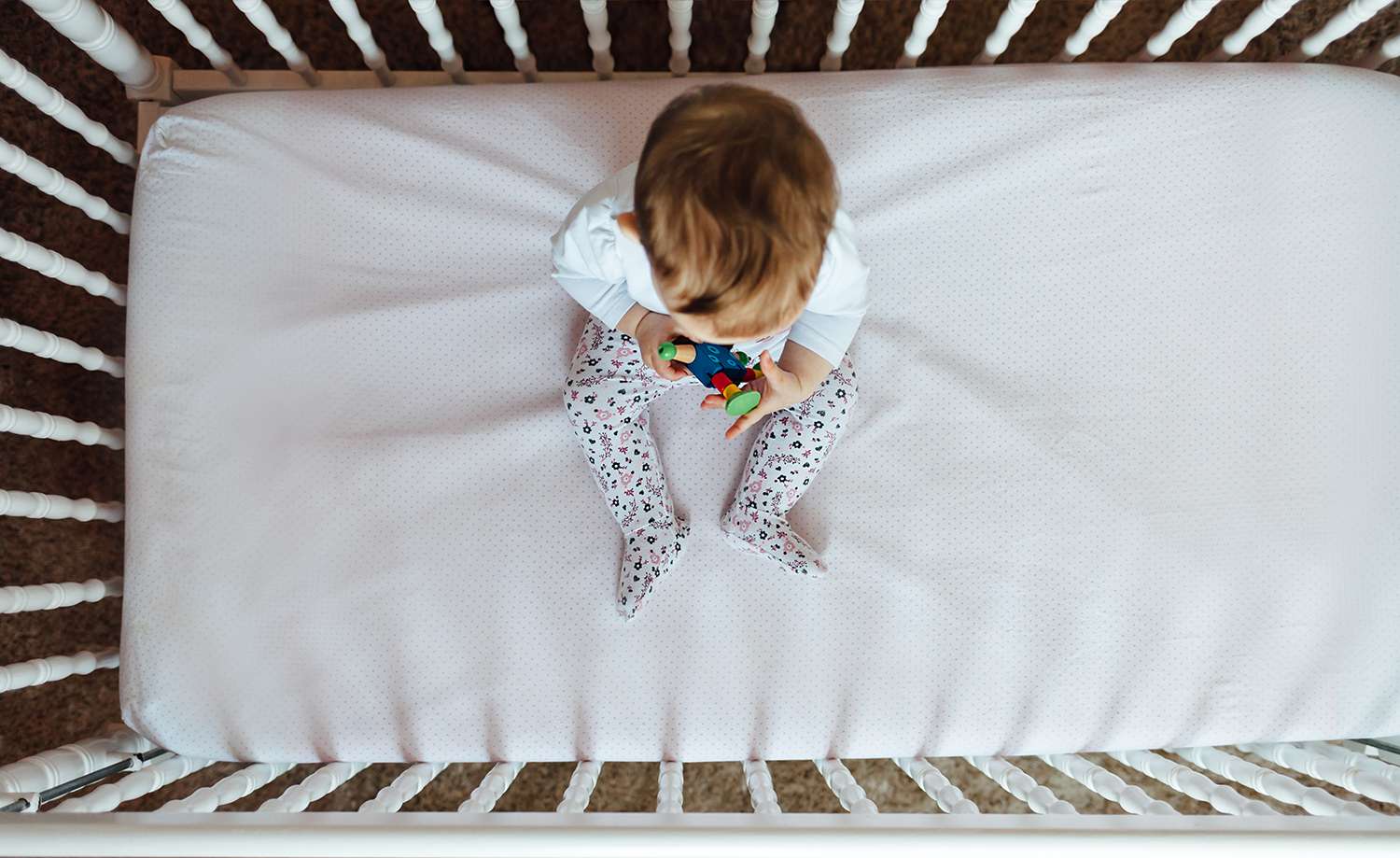
When it comes to choosing the right size for your baby’s crib mattress, it’s important to consider the comfort and safety of your little one. To ensure your baby gets the best night’s sleep, it’s important to look for the following features in a crib mattress:
Firmness: A firm crib mattress is essential for your baby’s safety. The mattress should not be too soft or too hard, but should be firm and supportive to provide your baby with the right level of comfort.
Durability: A good quality crib mattress should be made from durable and high-quality materials that will last through your child’s growth. Look for mattresses that have a reinforced core, so they provide long-lasting support and comfort.
Washability: Crib mattresses are highly susceptible to dirt and spills, so it’s important to look for ones that are easy to clean and maintain. Look for mattresses that have removable and washable covers for easy cleaning and maintenance.
Size: It’s important to choose the correct size for your baby’s crib mattress. According to the US Consumer Product Safety Commission, the standard size for a crib mattress is 28″x52″ and 6″ thick.
Safety: Look for mattresses that meet the safety standards of the American Society for Testing and Materials (ASTM). The mattress should also be free of any toxins, VOCs, and other chemicals that could be harmful to your baby.
By taking the time to consider these important features and finding the right size for your baby’s crib mattress, you can ensure your little one has a comfortable and safe sleep.
Firmness
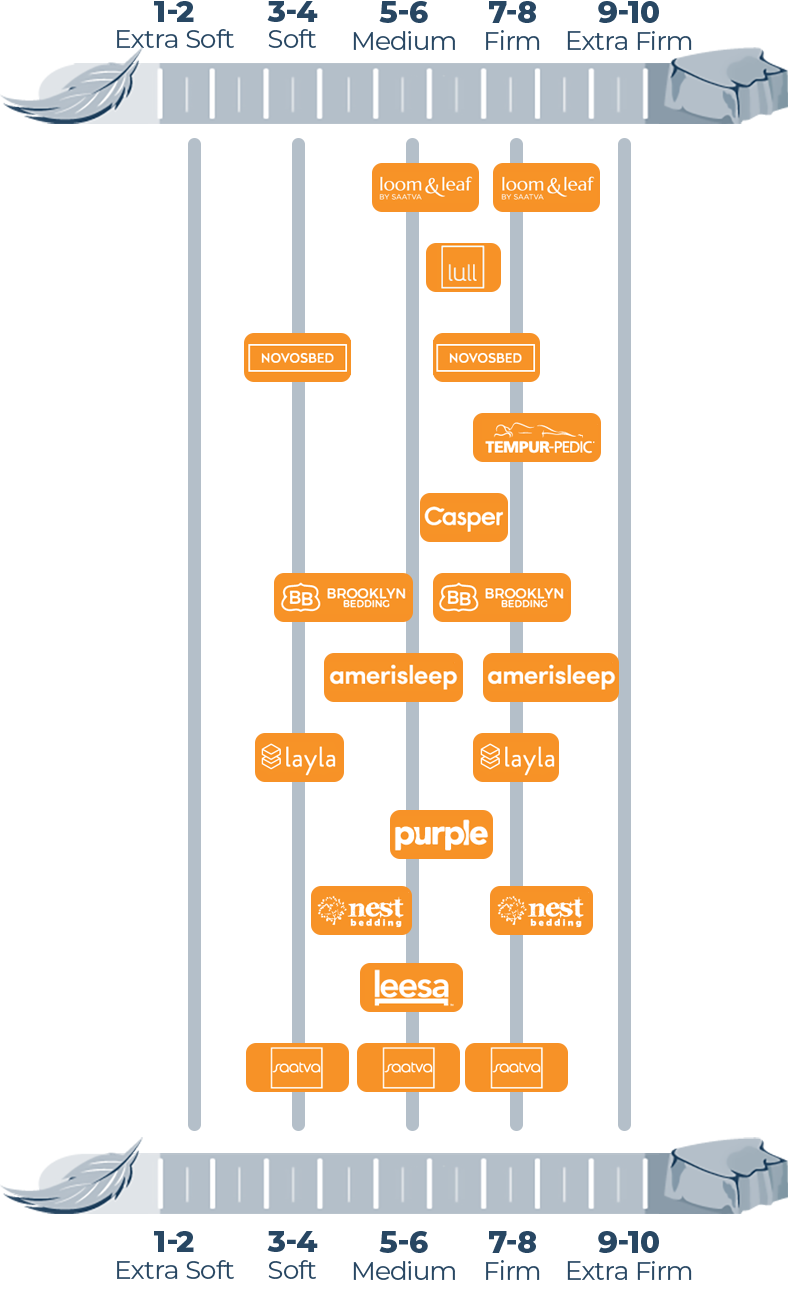
What size is a crib mattress? A standard crib mattress is usually 28 inches wide and 52 inches long. How wide is a crib mattress? The width of a crib mattress is 28 inches. It is important to note that a crib mattress should be firm and provide support for your baby in order to ensure a comfortable, safe sleep. The firmness of a mattress can be determined by checking the manufacturer’s guidelines or by conducting a simple test. Place your hand on the mattress and press down; the mattress should not sink more than an inch. If the mattress is too soft or too hard, it may not be suitable for your baby.
Breathability
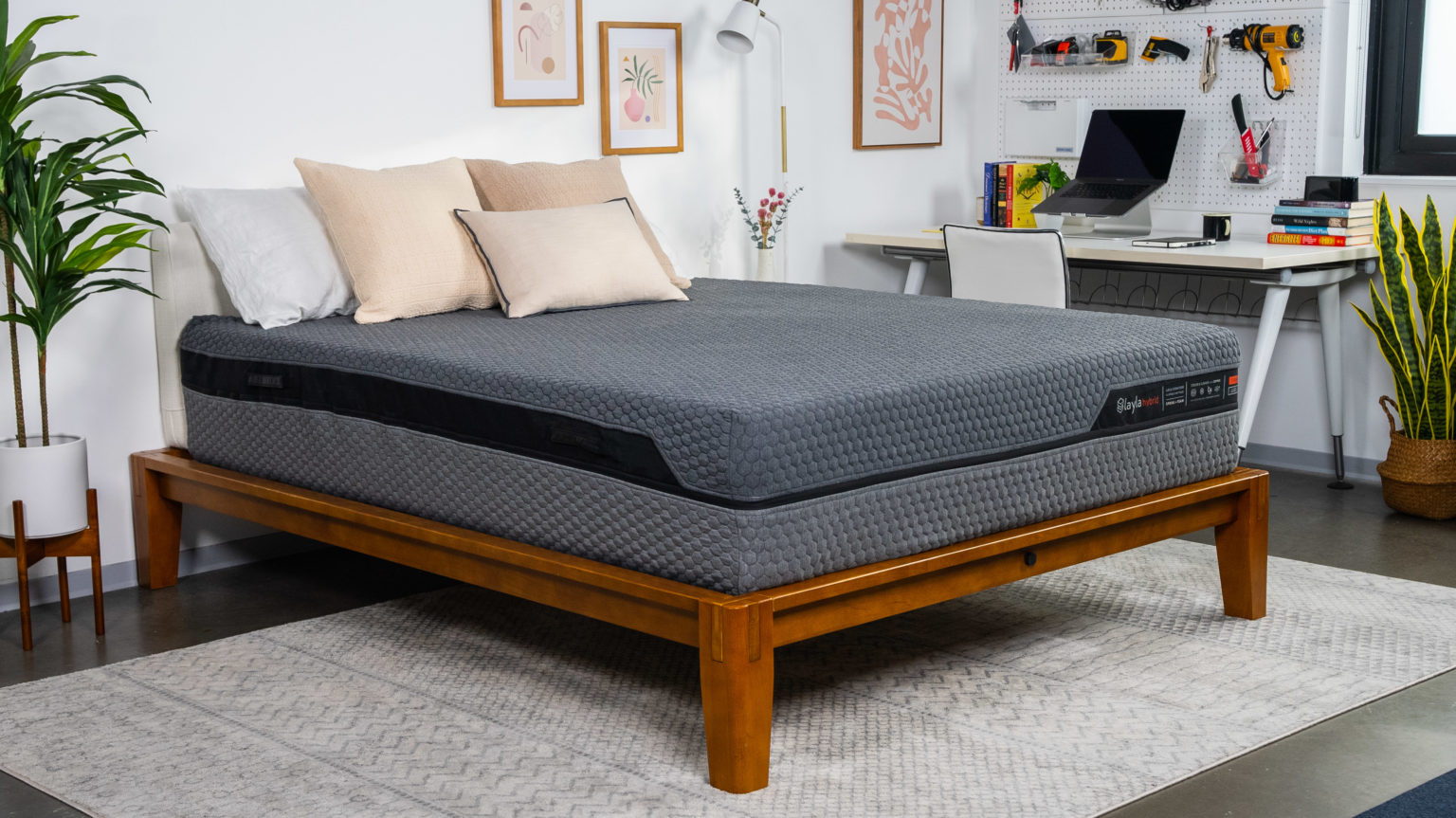
- Crib mattresses should be breathable to keep your baby comfortable and safe.
- Airflow between the mattress and your baby is important to prevent overheating.
- Look for mattresses with materials that allow breathability, such as organic cotton, wool, or polyester.
- Air vents, mesh, or holes in the mattress also help with breathability.
- Make sure the mattress cover is removable and washable.
When choosing a mattress for your baby, make sure to consider breathability as well as the size. The standard crib mattress size is 52” x 28”, but you should choose the size that best fits your crib and your baby’s comfort.
Waterproof Cover
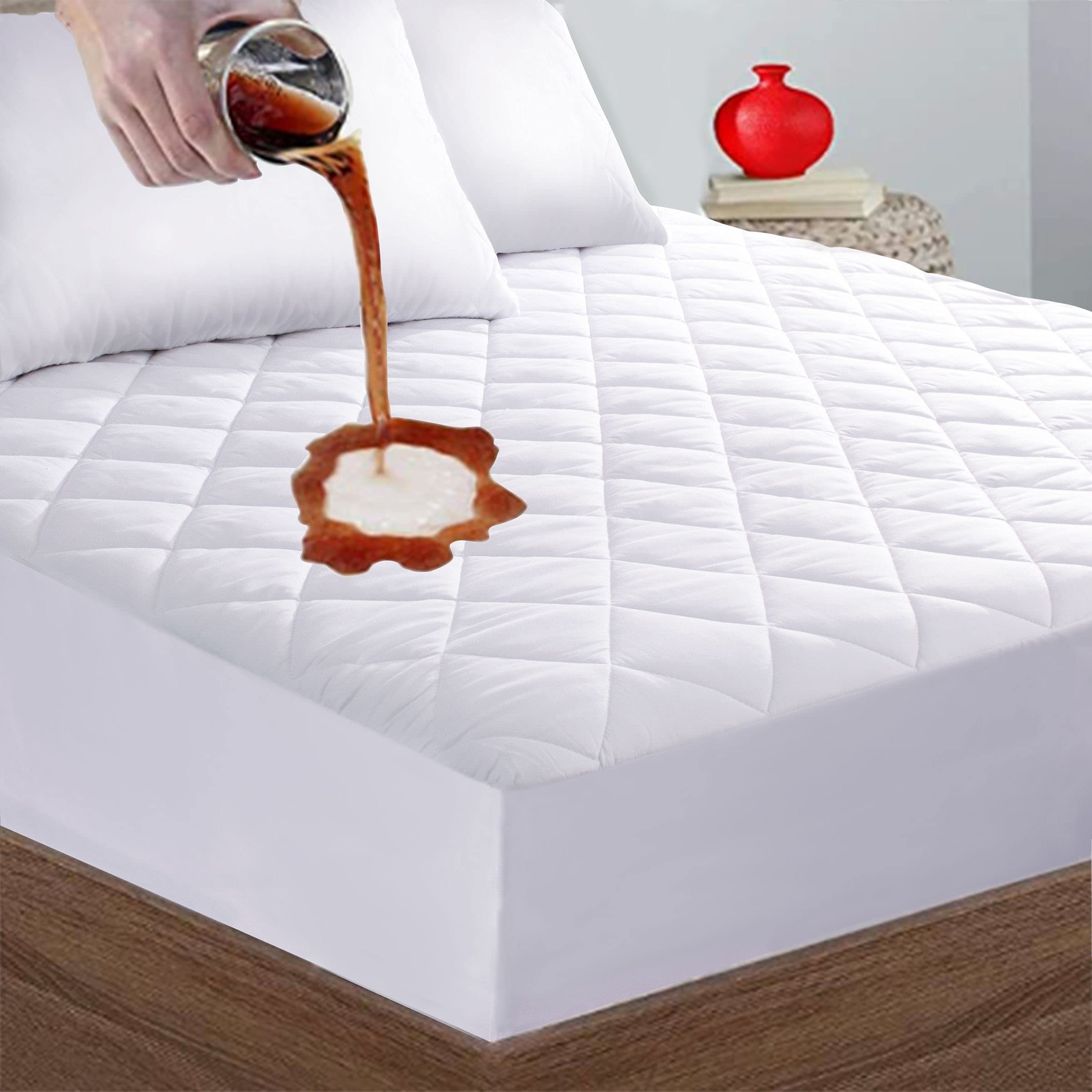
- A waterproof cover is a great way to protect your baby’s mattress from any spills or accidents. It is also an important way to protect your baby from any dust mites, bacteria, and other allergens that can collect on the mattress.
- When considering a waterproof cover, make sure to get one that is specifically designed for your crib mattress. This is important because they come in different sizes and shapes, and you need one that fits snugly on your mattress.
- Waterproof covers are made from different materials, such as vinyl, cotton, and wool, and some are treated with special chemicals to make them even more waterproof.
- These covers are easy to install and can be washed in the washing machine for easy maintenance and cleaning.
- A waterproof cover is a great way to give your baby a safe and comfortable sleep, as it will keep their mattress clean and free from allergens, bacteria, and other contaminants.
Additional Crib Mattress Accessories
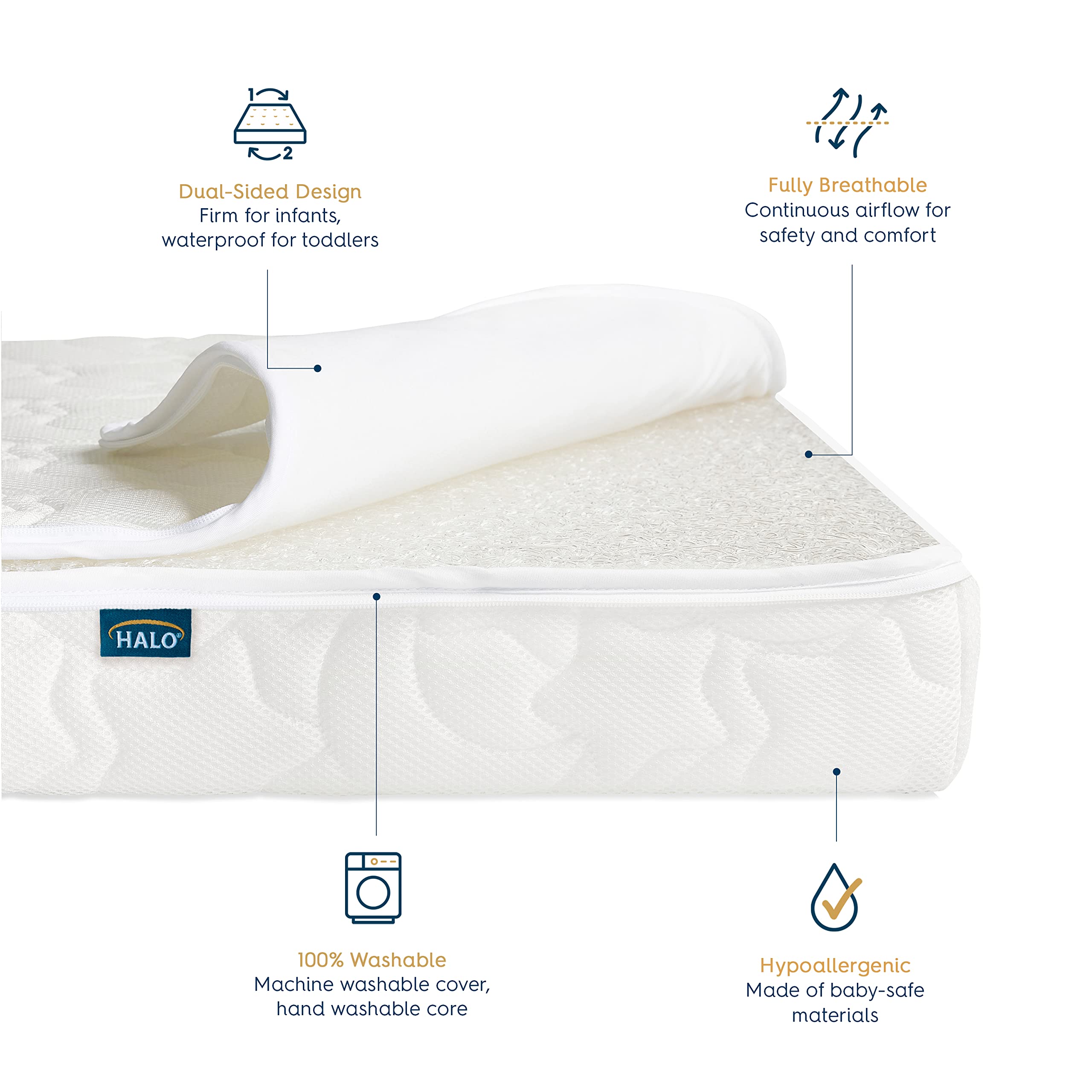
Crib sheets: Crib sheets are essential for providing your baby with comfort and warmth. They come in a variety of materials, sizes, and colors, and should be changed regularly.
Crib mattress pad: A crib mattress pad can help protect the mattress from spills and messes, as well as making sure the mattress is comfortable.
Crib mattress protector: A crib mattress protector helps to protect the mattress from dust, dirt, and other allergens. It’s also a good idea to have a mattress protector to keep the mattress in good condition.
Crib bumper: Crib bumpers are padded fabric strips that fit around the sides of a crib mattress to protect your baby from hitting their head or limbs on the sides of the crib.
Crib mattress topper: A crib mattress topper is an additional layer of cushioning that can be placed on the mattress to provide extra comfort and support.
Crib skirt: Crib skirts are decorative fabric pieces that fit around the bottom of the crib mattress and can add a touch of style to your nursery.
Crib mattress cover: A crib mattress cover provides an extra layer of protection for the mattress and helps to keep it clean.
Crib mattress wedge: A crib mattress wedge can be used to adjust the angle of the crib mattress to help reduce the risk of SIDS.
Crib mattress frame: A crib mattress frame can help to provide extra support and stability for the mattress, as well as making it easier to move the crib in and out of the room.
Crib mattress guard: A crib mattress guard can be used to protect the mattress from spills and messes, as well as helping to keep it in good condition.
Mattress Protectors
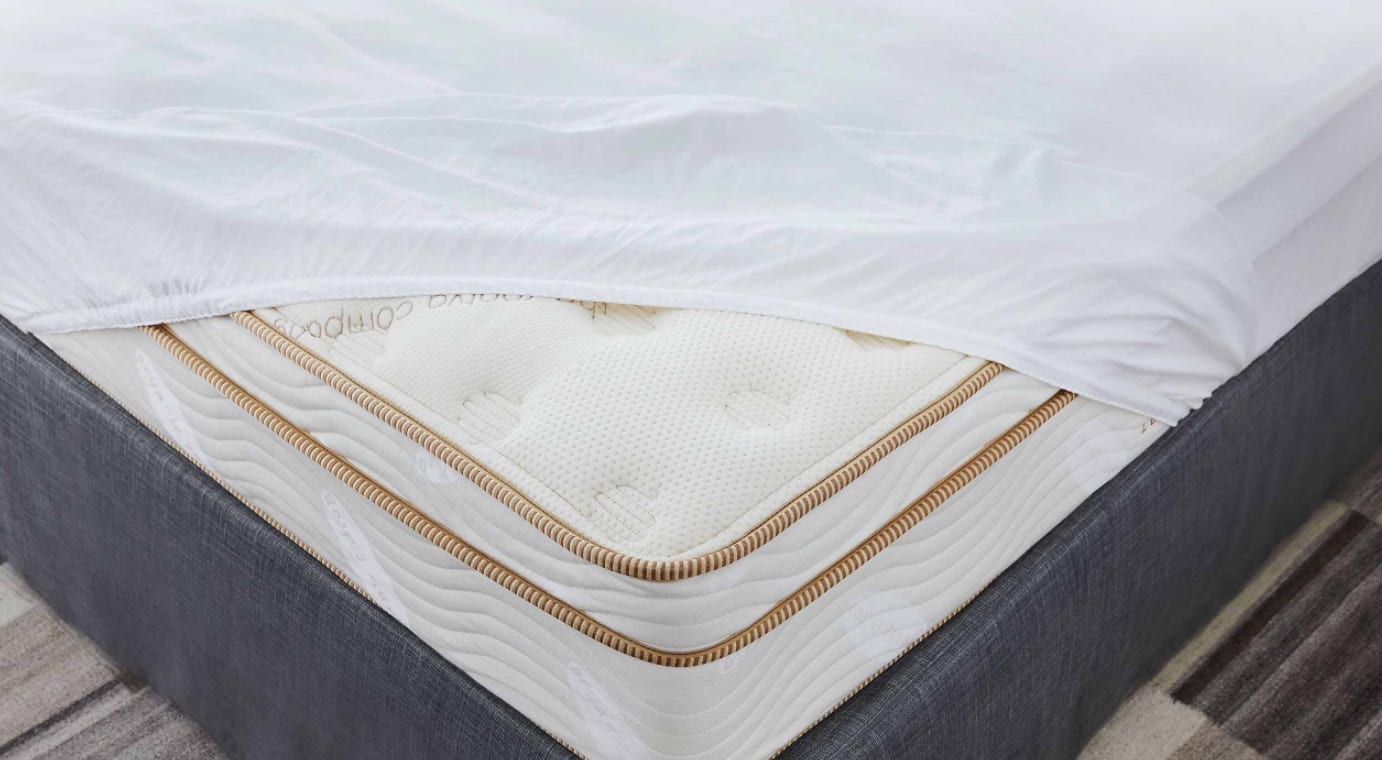
Crib mattresses come with different protective layers, such as mattress protectors. These are designed to protect the mattress from liquids and stains, as well as providing extra cushioning and comfort. Mattress protectors come in a range of sizes to fit any standard crib mattress. It is important to measure the mattress and purchase the correct sized mattress protector to ensure a snug fit. Here are some popular sizes of mattress protectors available:
- Standard Crib Mattress Size: 27.5 inches x 52 inches
- Mini Crib Mattress Size: 24 inches x 38 inches
- Portable Crib Mattress Size: 24 inches x 38 inches
- Toddler Bed Mattress Size: 28 inches x 52 inches
When shopping for mattress protectors, it is important to remember that the size of the mattress protector should be slightly larger than the size of the actual mattress. This is to ensure a snug fit and prevent any movement of the mattress protector. For example, if you have a standard crib mattress of 27.5 inches x 52 inches, then you should look for a mattress protector that is 28 inches x 53 inches.
Crib Sheets
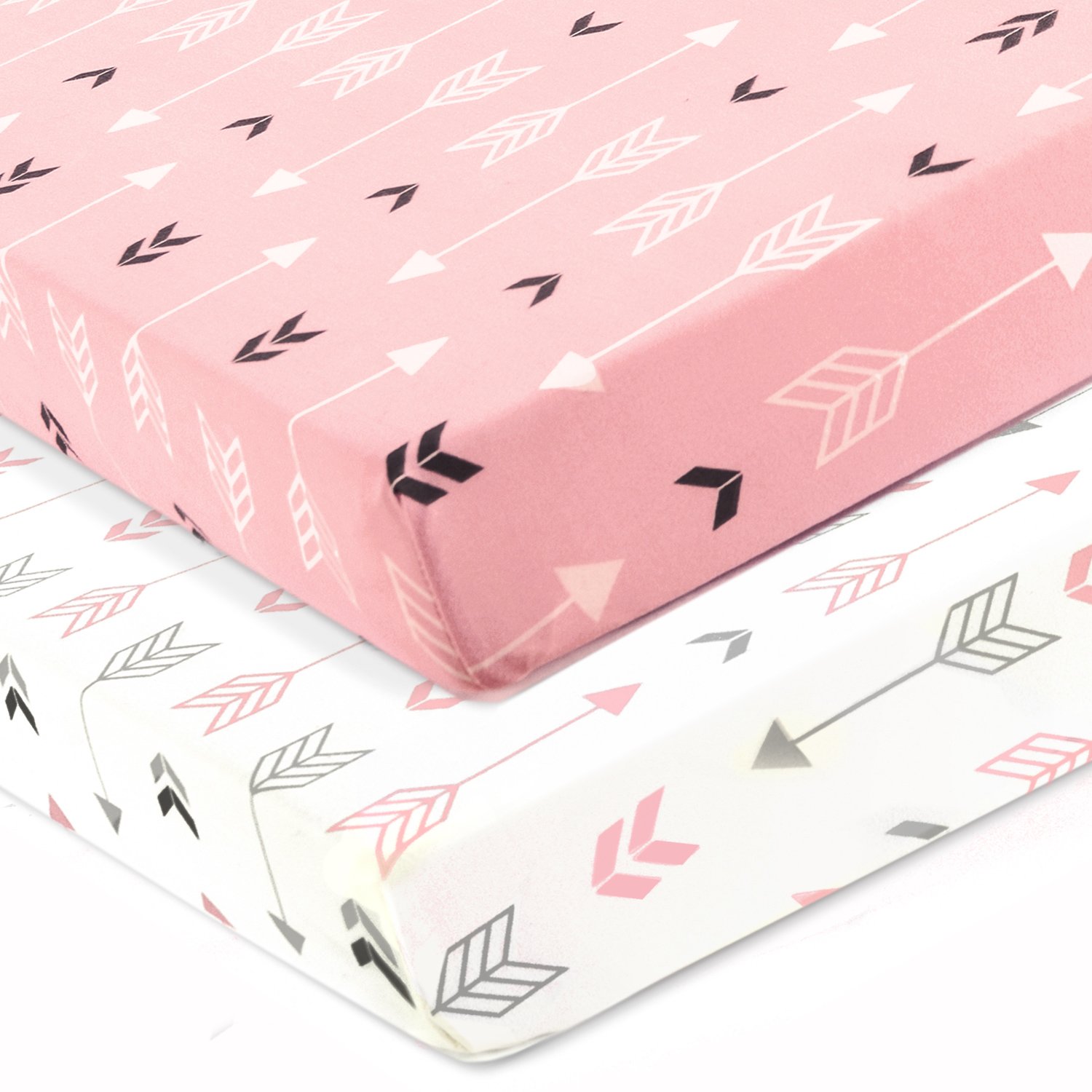
- Fabric: Crib sheets are designed to fit snugly on crib mattresses, so they should be made of soft, breathable fabric that is durable and easy to clean.
- Prints: Crib sheets come in a variety of prints and colors to match any nursery décor.
- Stretch: Look for sheets with elastic around the edges to ensure a secure fit.
- Size: Crib sheets are sized to fit standard crib mattresses, which are typically 28”x52”.
- Safety: Safety is a priority when choosing crib sheets, so look for sheets made from flame-resistant fabrics.
Crib sheets are a necessity for any baby’s bed. They provide a soft and comfortable sleeping surface for your baby, protect the mattress from moisture and spills, and keep your baby’s bed looking neat and tidy. When shopping for crib sheets, you’ll want to consider the fabric, prints, stretch, size, and safety features.
Mattress Pads
A mattress pad is an additional layer of padding that is placed on top of the crib mattress. It acts as a protective layer and can also provide additional cushioning, making the mattress more comfortable for your baby. When selecting a mattress pad, make sure that it is the correct size for the crib mattress. Most mattress pads come in standard crib mattress sizes, but there are some that are specifically designed for non-standard sizes. Be sure to check the size before purchasing a mattress pad.
When it comes to crib mattress sizes, the standard size is usually 28 inches wide by 52 inches long. However, the size can vary slightly, so it is important to measure the mattress before buying a mattress pad. It is also important to check the width of the mattress as this can vary from 28 inches to as wide as 38 inches. It is important to ensure that the mattress pad you purchase will fit the size of the crib mattress correctly.
Frequently Asked Questions
What are the Standard Sizes of Crib Mattresses?
Crib mattresses are available in two standard sizes: 27.5 inches wide by 52 inches long and 28 inches wide by 52 inches long. The size you choose will depend on the size of your crib. If you have an older crib, it is likely to be 27.5 inches wide, whereas newer cribs tend to be 28 inches wide. It is important to make sure you measure your crib before purchasing a mattress.
Can I use a mattress that’s not the right size for my crib?
No. Using a mattress that doesn’t fit the crib correctly is dangerous. The mattress should be snug and fit securely in the crib frame. If the mattress is too small, it can create a gap between the mattress and the sides of the crib. This gap can be a dangerous entrapment hazard for your baby.
Here are some points to consider when choosing the right sized mattress:
- The mattress should be firm and tightly fitted against the sides of the crib so that there are no gaps.
- Check the measurements of your crib, and make sure the mattress is the same size.
- Check the label on the mattress for the manufacturer’s suggested size for the crib.
- Look for mattresses that are made specifically for your crib size.
Using the wrong size mattress can be dangerous for your baby. It can create a gap between the mattress and the crib, which can be a hazard. Make sure you check the measurements of your crib and the mattress to ensure the right size is purchased.
Are There Any Safety Considerations When Choosing a Crib Mattress Size?
It is important to ensure that the mattress fits the crib snugly, with no more than two fingers width of space between the edges of the mattress and the sides of the crib. This will help to prevent the baby from being trapped in the gap. The mattress should also be firm, as soft mattresses can increase the risk of Sudden Infant Death Syndrome (SIDS).
What Mattress Thickness Should I Look For When Buying a Crib Mattress?
When buying a crib mattress, look for one that is between 4 and 6 inches thick. This will provide the optimal amount of comfort and support for your baby, as well as fit properly in the crib. Mattresses that are too thin can be uncomfortable for your child and may not fit properly in the crib. Similarly, mattresses that are too thick can cause your baby to be too high in the crib and can be a suffocation hazard. Make sure to measure the interior of the crib before purchasing a mattress to ensure a proper fit.
Are there any other factors to consider when purchasing a crib mattress?
- Comfort: You want your baby to be comfortable, so make sure to get a mattress that is not too soft or too hard.
- Durability: A cheap mattress might not last long, so make sure to get one that is durable and long-lasting.
- Safety: The mattress should be certified by a government agency to ensure that it meets safety standards.
- Allergens: Make sure to get a hypoallergenic mattress that is free of chemicals and other allergens.
- Price: Choose a mattress that fits within your budget and still offers quality and comfort.
Conclusion
Crib mattresses come in three standard sizes – mini, standard and toddler. Choosing the right size for your crib depends on the size of your crib and the age of your baby. It is important to ensure that the mattress is the correct size for your baby’s comfort and safety. Additionally, always use the fitted sheet that comes with the mattress and make sure it is properly secured.
